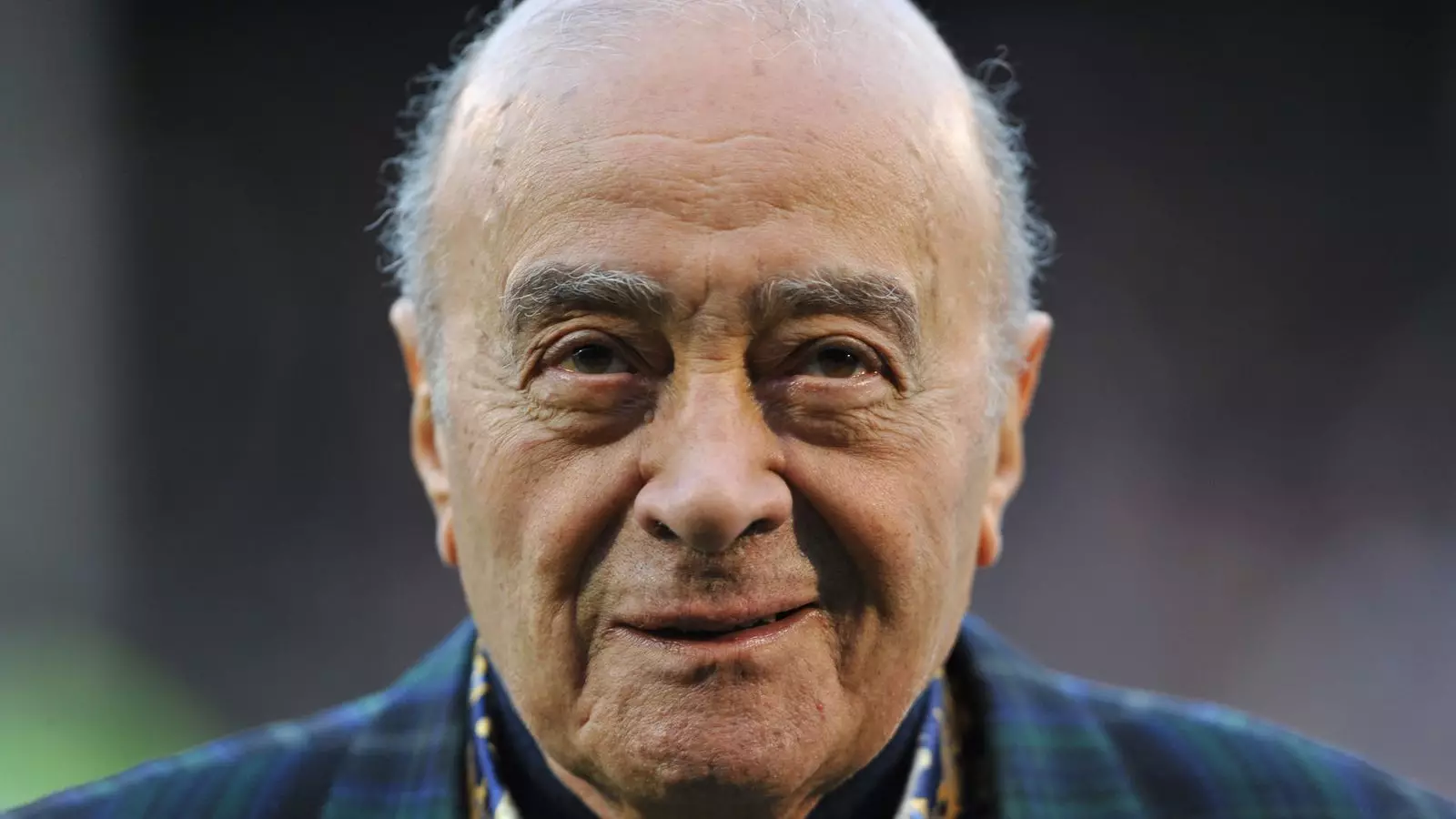The late Mohamed al Fayed, former owner of Harrods, has found himself at the center of a storm of allegations about sexual abuse and misconduct following his passing in 2022. The Crown Prosecution Service (CPS) has publically acknowledged its failings in relation to allegations against him, a situation that has left many questioning the systemic issues surrounding accountability for high-profile figures. Accusations from multiple women paint a disturbing picture of a man wielding immense power and influence, raising pressing concerns about the institutional responses to such accusations.
Allegations of Abuse: The Testimonies
Fayed has been labeled a “monster” by attorneys representing alleged victims who assert that he sexually assaulted and raped them during their employment at Harrods. They allege that he actively sought out female employees under the guise of professional opportunity before subjecting them to appalling abuse in his executive suite. The legal team’s announcement of receiving over 150 inquiries after a recent BBC documentary highlights the pervasive nature of the allegations and the potential for many more victims who have yet to come forward. In an era where discourse around survivor rights and the repression of abuse is gaining momentum, these accusations force us to reevaluate how society views such power dynamics.
The CPS’s admission of past failures to prosecute Fayed underscores significant systemic issues within the legal framework tasked with addressing sexual offenses. Instances from 2008 and 2013 led to missed opportunities for justice due to conflicting evidence and insufficient support for prosecution. A CPS spokesperson noted that, to initiate a prosecution, evidence must present a “realistic prospect of conviction.” While their rigorous scrutiny of the evidence is commendable, the failure to address the broader implications of their decisions raises concerns about whether they prioritize legal standards over victim advocacy.
A particularly troubling aspect lies in the subsequent investigations. Following a 2015 review by police, no charges were brought despite serious allegations being resurfaced, creating a perception of impunity surrounding Fayed. Furthermore, the CPS offered early investigative advice in 2018, 2021, and 2023, yet no comprehensive evidence was substantiated, further reflecting a troubling pattern of inaction.
The revelations prompted statements from figures like Dai Davies, former head of royal protection, who disclosed his concerns over Fayed’s reputation dating back to the 1990s. His warnings to the Royal Family about Fayed’s character become more poignant considering Princess Diana’s association with him. The fact that powerful institutions like the Royal Family were seemingly shielded from or ignorant of the gravity of allegations against Fayed raises significant questions about societal complicity and the mechanisms by which abuse can flourish under the radar.
Buckingham Palace’s decision to refrain from commenting on the ongoing allegations speaks to the complexities of addressing such delicate matters within influential circles. This reticence mirrors the historical reluctance of institutions to take decisive action against beloved public figures, which only serves to perpetuate cycles of abuse.
A Response from Harrods and Fulham FC
In light of these distressing allegations, both Harrods and Fulham FC, a club formerly owned by Fayed, have expressed their unease regarding the mounting accusations. Harrods has issued an apology to the alleged victims while also creating a platform for former employees to safely share their experiences. Their proactive approach could be viewed as a necessary step in breaking the cycle of silence surrounding misconduct.
Fulham FC, too, has expressed a similar sentiment, declaring that they are “deeply troubled” by the claims against Fayed. Both institutions appear to understand the implications of these revelations, recognizing the importance of transparency and accountability in addressing the past.
The allegations against Mohamed al Fayed reveal a troubling intersection of power, abuse, and institutional failings that challenge societal norms. As conversations about accountability and systemic injustice gain prominence, it becomes imperative that institutions learn from past mistakes and work towards fostering an environment where victims feel empowered to speak out. This case serves as a stark reminder of the necessity for vigilance in the fight against abuse and a call to action for change within our legal systems and societal structures. The fight for justice extends beyond indictments; it embraces the enduring need to support and believe survivors, to cultivate a culture of accountability, and to ensure that such histories do not repeat themselves.


Leave a Reply